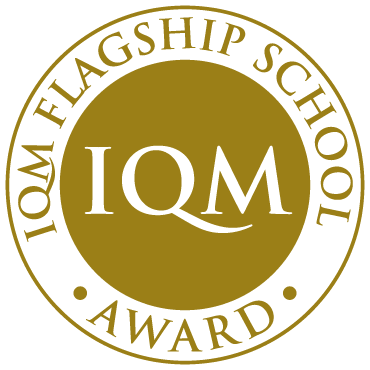Remote Learning
Remote education provision: information for parents
This information is intended to provide clarity and transparency to pupils and parents or carers about what to expect from remote education where national or local restrictions require the whole school or entire cohorts (bubbles) to remain at home.
Children who are not attending school will have access to remote provision at home.
For details of what to expect where individual pupils are self-isolating, please see the final section of this page.
The remote curriculum : What is taught to pupils at home
A pupil’s first day or two of being educated remotely might look different from our standard approach, while we take all necessary actions to prepare for a longer period of remote teaching.
What should my child expect from immediate remote education in the first day or two of pupils being sent home?
Pupils will be sent home with a paper pack of work to complete independently in the first instance. Pupils will also have online codes in their pack to enable them to access online provision, as soon as it is available.
Following the first few days of remote education, will my child be taught broadly the same curriculum as they would if they were in school?
We teach the same curriculum remotely as we do in school wherever possible and appropriate. However, we have needed to make some adaptations in some subjects. For example, music lessons may differ from those taught in school due to access to musical instruments. Foundation subjects will be taught in blocks, rather than a variety of lessons throughout the week.
Pupils will be set a writing/Grammar, maths, reading and foundation lesson daily.
We suggest your child follows a weekly timetable, such as the one below, to keep their day as in line with the normal school day as possible. Routine and structure will support not only your child’s learning but also their emotional well-being.
Remote teaching and study time each day
How long can I expect work set by the school to take my child each day?
We expect that remote education (including remote teaching and independent work) will take pupils broadly the following number of hours each day:
| Year Group | Duration |
| Early Years Foundation Stage (Nursery and Reception) | Up to 2 hours a day |
| Key Stage 1 (Year 1 and Year 2) | 3 hours a day on average across the cohort, with less for younger children |
| Key Stage 2 (Year 3, 4, 5 and 6) | 4 hours a day |
Accessing remote education
How will my child access any online remote education you are providing?
We are using Seesaw to deliver online lessons to pupils across school. Your child will have their own unique code to access Seesaw. You can access Seesaw in the following ways:
- From a laptop / computer by visiting the website https://web.seesaw.me/
- Download the app to any iPad/tablet or smart phone
Once logged in, your child will see their daily lessons and activities set by their teachers. Lessons will include videos and presentations from teachers or the internet with activities or worksheets to complete. If your child requires any textbooks to complete the lessons, they will be available to collect from school.
Lessons will be available from 9am daily.
All lessons will be personalised to your child. If your child receives an additional intervention in school, where possible, this will be delivered remotely (e.g. Lexia, 123maths, RWI phonics interventions). Your child will be informed by their class teacher if they are able to access additional interventions.
We encourage pupils to access Seesaw between the hours of 9am-3pm. Work completed after 4pm may not be marked until the following day as the class teacher may not be available. If work is marked after 4pm, teachers will not reply to messages until the next day
If my child does not have digital or online access at home, how will you support them to access remote education?
We recognise that some pupils may not have suitable online access at home. We take the following approaches to support those pupils to access remote education:
- Devices: School are able to lend laptops to pupils who do not have a device to access remote education. Please inform your child’s class teacher if you do not have a device and Mr Kumar will contact you to arrange collection.
- Internet: If you do not have fixed broadband at home, please contact Miss Rennison at school to arrange for an application for mobile data increase or to lend a 4G wireless router.
- Paper packs: Paper packs are available from school every fortnight (Year 1 packs are weekly). However, we are encouraging all pupils to access online learning where possible. If you have any difficulties accessing online lessons not described above, please contact the school to discuss this with a member of the Senior Leadership Team.
How will my child be taught remotely?
We use a combination of the following approaches to teach pupils remotely:
Some examples of remote teaching approaches we use are:
- Pre-recorded teaching (online lessons) via Seesaw
- Recorded teaching using published materials (e.g. Oak National Academy lessons, BBC bitesize)
- Printed paper packs produced by teachers (e.g. workbooks, worksheets)
- Textbooks and reading books pupils have at home
- Commercially available websites supporting the teaching of specific subjects or areas, including video clips or sequences
- Specific intervention websites (e.g. Lexia, 123maths, TT Rockstars) which require pupils to have a log on linked to school
Engagement and Feedback
What are your expectations for my child’s engagement and the support that we as parents and carers should provide at home?
The expectation for all pupils is to engage daily with online learning or paper packs set by school for the recommended hours stated above.
If pupils have any difficulties accessing online learning, it is expected that parents or carers will inform their class teacher as soon as possible.
Most lessons can be accessed by pupils independently. We therefore expect parents and carers to support pupils by setting a daily timetable and ensuring they are engaging with lessons.
Younger children in Key Stage 1 or Reception often require high levels of parental involvement to support their engagement with remote education which makes digital provision a particular challenge for this age group. Therefore, solely digital means will not be the only resource used to teach these pupils remotely and may require more parental support.
We also recognise that some pupils with Special Education Needs and Disabilities (SEND) may not be able to access remote education without adult support we will work with families to deliver an ambitious curriculum appropriate for their level of need. Please see the SEND page for further information.
How will you check whether my child is engaging with their work and how will I be informed if there are concerns?
Class teachers check pupils’ engagement on Seesaw daily by taking a register noting who has and has not accessed online lessons.
Class teachers will contact parents once a week to discuss how pupils are getting on at home and share any concerns about engagement.
The school Senior Leadership Team monitors whole school engagement weekly.
Whole school percentages of engagement are shared and celebrated with parents via school newsletters.
How will you assess my child’s work and progress?
Feedback can take many forms and may not always mean extensive written comments for individual children. For example, whole-class feedback or quizzes marked automatically via digital platforms are also valid and effective methods, amongst many others. Our approach to feeding back on pupil work is as follows:
- Feedback: Teachers will feedback to children on all work they complete. This will follow our school marking policy where possible. Teachers will mark work, leave comments and send work back for corrections if required.
- Assessment: Teachers will use a variety of assessment methods e.g. marking, quizzes, monitoring progress through intervention programs e.g. Lexia, Read Plus.
Remote Education for self isolating pupils
Where individual pupils need to self-isolate but the majority of their peer group remains in school, how remote education is provided will likely differ from the approach for whole groups. This is due to the challenges of teaching pupils both at home and in school.
If my child is not in school because they are self-isolating, how will their remote education differ from the approaches described above?
If your child is required to self-isolate, please inform school as soon as possible by contacting the school office.
Your child’s class teacher will provide a paper work pack for your child to complete at home for the period of their isolation. This can be collected from the school office or, if you are unable to collect due to isolation, can be delivered by the school pastoral team.
Your child can take pictures of their paper pack work and upload this to Seesaw for their teacher to mark and give feedback.
Class teachers will additionally upload activities for your child to complete on Seesaw. Activities will be an online learning video and an activity to complete.
Pupils will be given their log on codes for all subscription websites used by the school and will be expected to complete these daily e.g. Reading Plus, Lexia.
Thank you for supporting your child with their learning throughout the school closure. If you would like any help, support or advice, please contact school and ask to speak to your child’s class teacher.










